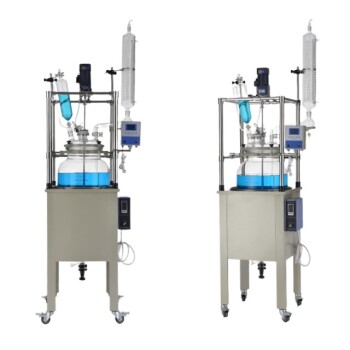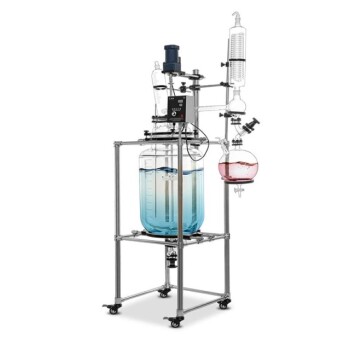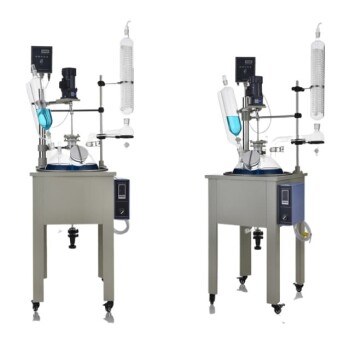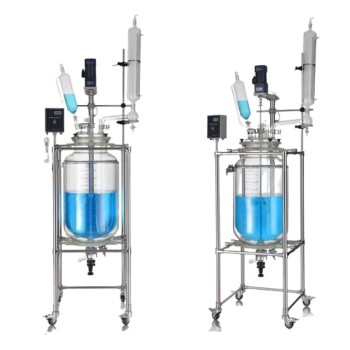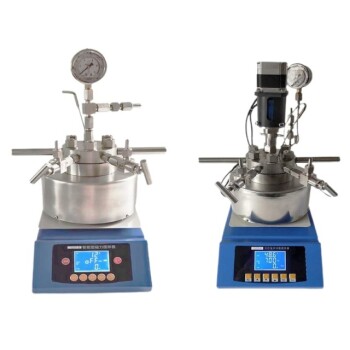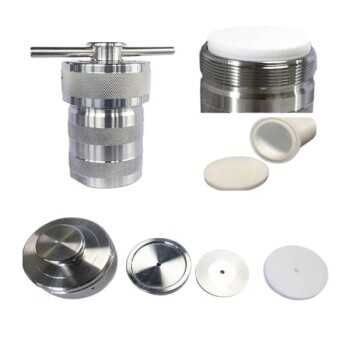Glass reactors, particularly high-pressure glass reactors, are designed to handle specific pressure and temperature ranges to ensure safe and efficient operation. The pressure rating of a glass reactor typically ranges from a full vacuum (-1 bar) to +12 bar (g), with a temperature range of -20°C to +200°C. These reactors are made from Borosilicate Glass 3.3, which is highly resistant to corrosion and chemical reactions, making them suitable for a wide range of applications in industries such as chemicals, pharmaceuticals, and food additives. Proper assembly, operation, and maintenance are crucial to ensure safety and longevity of the equipment.
Key Points Explained:

-
Pressure Rating Range:
- Full Vacuum to +12 bar (g): Glass reactors are designed to operate within a pressure range that includes both vacuum conditions and positive pressure. This range allows for versatile applications, including reactions that require vacuum distillation or high-pressure conditions.
- Safety Considerations: Operating within the specified pressure range is crucial to prevent over-pressurization, which could lead to equipment failure or safety hazards.
-
Temperature Range:
- -20°C to +200°C: The temperature range for glass reactors is broad, accommodating both low-temperature reactions (such as cryogenic processes) and high-temperature reactions (such as those requiring heat transfer fluids).
- Thermal Stability: The Borosilicate Glass 3.3 material used in these reactors provides excellent thermal stability, ensuring that the reactor can withstand rapid temperature changes without cracking or breaking.
-
Material Composition:
- Borosilicate Glass 3.3: This material is chosen for its high chemical resistance, making it suitable for use with a wide range of chemicals, except for fluorine, phosphorus, and hot strong caustic solutions.
- Non-Corrosive and Non-Reactive: The inert nature of Borosilicate Glass 3.3 ensures that it does not react with the chemicals used in the reactor, maintaining the integrity of the reaction and the equipment.
-
Design Features:
- Jackets and Coils: Glass reactors often feature jackets, half pipes, and fan coils for efficient heating and cooling. These structures allow for precise temperature control, which is essential for many chemical reactions.
- Transparency: The transparency of the glass allows for visual monitoring of the reaction process, which is particularly useful for observing changes in color, phase, or other visual indicators.
-
Operational Safety:
- Ventilation and Assembly: Proper ventilation is essential to avoid the buildup of hazardous gases. The reactor must be correctly assembled and charged to prevent leaks or other safety issues.
- Cleaning and Maintenance: Regular cleaning according to standard operating procedures (SOP) is necessary to maintain the reactor's performance and safety. This includes venting internal pressure and ensuring all accessories are in perfect condition.
-
Applications:
- Wide Industry Use: Glass reactors are used in various industries, including chemicals, pharmaceuticals, dyes, pesticides, petroleum, and food additives. Their versatility makes them suitable for a wide range of chemical processes.
- Flexible Mixing Rates: The ability to adjust mixing rates and feed channels allows for precise control over the reaction conditions, which is essential for achieving desired outcomes in complex chemical reactions.
By understanding these key points, a purchaser can make informed decisions about the suitability of a glass reactor for their specific needs, ensuring that the equipment will perform safely and effectively in their intended application.
Summary Table:
| Feature | Details |
|---|---|
| Pressure Rating | Full vacuum (-1 bar) to +12 bar (g) |
| Temperature Range | -20°C to +200°C |
| Material | Borosilicate Glass 3.3 (high chemical resistance) |
| Design Features | Jackets, coils, and transparency for precise control and visual monitoring |
| Operational Safety | Proper ventilation, assembly, and maintenance are critical |
| Applications | Chemicals, pharmaceuticals, food additives, and more |
Need a high-pressure glass reactor tailored to your needs? Contact us today for expert advice and solutions!
